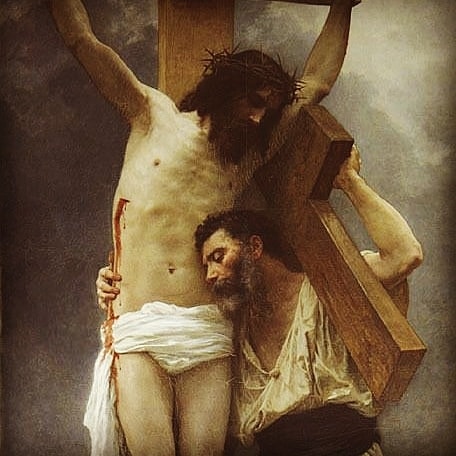
Mt.25: 31-46
“Where love is, God is…” a classic short story of renowned Russian literary figure Leo Tolstoy. It presents the life story of an old cobbler called Martin Avdeitch. He was a man good at heart and committed to his profession. Unfortunately, he had to face lots of hardships one after the other in his life. All his children passed away at a tender age except his three-year-old son. A few years later, his wife also passed away. Then he carried on with his life journey, looking after his only son. Sadly he lost his remaining son due to fever within a few years. Having undergone all these tragedies, he lost his faith in God. One day he encountered a missionary and he convinced Martin that he had to live for God and not to deny His existence because it is ‘God’s will’ that is the ultimate deciding factor in our lives and we cannot question that. He was deeply touched by the words of the missionary and started to read the New Testament with great passion and renewed love. It led him to a personal transformation. Martin accepted his life and recognized the presence of God in his life situations. One night Martin was reading the account of Jesus visiting the Pharisee’s house and woman anointing Jesus’ feet and wiping with tears. At that moment he felt that he is like that Pharisee, living only for himself. With a heavy heart, he went to sleep. During his sleep, he had a dream in which Jesus told him that he would visit him the next day.
The next day with great expectation and enthusiasm Martin waited for Jesus. After a while, Martin saw a man shoveling the snow away in the stone-cold. He invited him to the house, and gave him a warm drink, and talked for a while. He shared with him the story of Pharisee and the woman who anointed Jesus. The man was moved with tears and thanked Martin for providing food for his both body and soul. Then Martin encountered a woman with a baby, lacking sufficient warm clothes to defend against the biting cold. He gave them food and sufficient clothes. He spoke to them about Jesus and sent them off. Then he saw a boy stealing from the old lady. Martin went out, spoke to them, and settled their arguments, and expressed his compassion for both of them. At the end of the day when he went to bed, he thought to himself that why did God not visit him, and was it a mere dream? Then he heard the voice of Jesus telling him within that He visited Martin in each person came to him for help… ‘Truly I tell you, just as you did it to one of the least of these who are members of my family, you did it to me.’ (Mt. 25: 41)
We celebrate the solemnity of Christ the King as we are on the last Sunday of Ordinary time. It is a graceful occasion for all of us to reflect on the fact that we celebrate the Kingship of Christ at the end of ordinary time. It signifies the eschatological reality that there will be a fuller realization of the kingdom of God preached by Christ at the end of time. Our faith principles instruct us that at this juncture there will be a final judgment by Christ. In reality, it is not Christ who is going to judge us but ourselves by our own choices. The entire teachings of Christ can be summarized in two commandments; love of God and love of our neighbours. This is the criteria by which we are going to make our judgment. We are presented with a review of our life. It may be the moments we might have recognized disguised Christ in our needy brethren such as hungry, thirsty, sick, prisoner, naked, etc. At times, we may think that I am perfect and leading an upright life because I am not causing any harm to anyone. However, this is not enough; we are endowed with the responsibility to care for and love them as Jesus has loved us. This is the crux of Christian charity in its fullness. The first Christian community was an excellent example of practicing faith working in action. They did not keep anything for themselves. They sold all their possessions and distributed everything to all. Over time, Christianity lost these basic tenants taught by Christ.
The Parable depicts two kinds of responses to the invitation of Christ to live Christian ideals. The first category of people, they encountered Christ in the least of their brethren such as sick, naked, hungry, prisoner. They did these acts of mercy without expecting any reward in return. That’s why these people ask Jesus when we saw you as hungry, sick, naked, prisoner, etc. All these charitable deeds of these brethren what they did in darkness were counted by Christ. They always found means and ways to reach out to their fellow brethren in need. Whereas, the other group of people, denied eternal life because they were indifferent towards their needy brethren. They did not make any mistake consciously. However, they did not make any conscious effort to reach out to their fellow brethren in need.
As we meditate on this passage today let us live the Christian values consciously and in a concrete manner by loving God above all and also inculcate an authentic brotherly love. The love and care that one stands in need of without expecting anything in return. Like martin, let us encounter Jesus in our needy brethren. So that one day when we have the review of our life in the presence of Jesus, we may be rewarded by belonging to the flock of Christ, enjoying the green pastures of eternal life along with Christ, our Good shepherd.